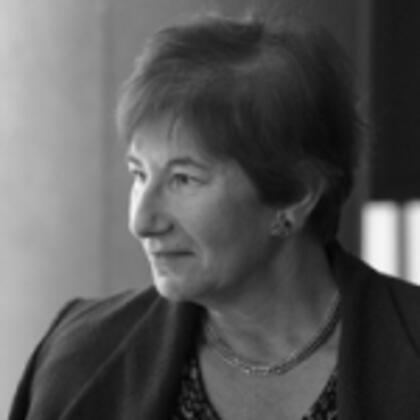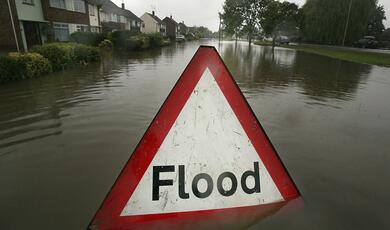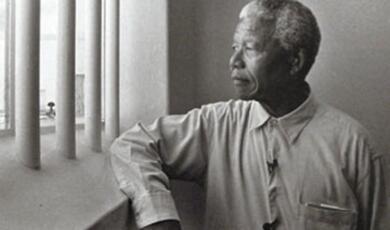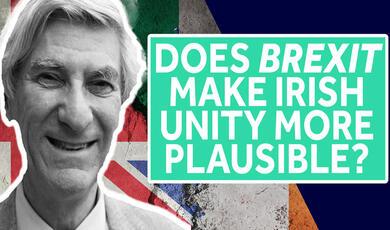The Universities - Under regulation
Share
- Details
- Text
- Audio
- Downloads
- Extra Reading
All universities are anxious to raise funds and some have come under criticism for accepting funds from despotic regimes which are seeking credibility and influence. What are the limits of fundraising? British universities have also acquired a reputation for hosting extremist speakers and for failing to control racial and religious hatred on campus, in the name of academic freedom and freedom of speech. What are the ambits of freedom of speech? Why is campus life threatening to some students, and what should universities do about it? Student complaints are on the increase. The Coexistence Trust has come into being to build networks of trust between Muslim and Jewish students on campus and to fight antisemitism and Islamophobia. How can students be encouraged to take up peaceful dialogue and not fight international battles at home?
This is part of Baroness Deech' series Regulation, Regulation, Regulation. The other lectures in this series are:
The Universities - Over regulation
The BBC - Protecting it from the Government
The BBC - Defending the public interest
The Legal Profession - Regulating for independence
Regulating the Regulators
Download Text
28 March 2012
The Universities:
Under Regulation
The Baroness Deech of Cumnor
Now that around 45% of the population go to university (51% women and 40% of men) the campus community mirrors the outside world, with all its aspirations and prejudices. Many students come from families with no experience of higher education. Many are part time and cannot or will not leave home and are therefore much more embedded in their local communities than in the university. Although you would have thought that campus was the one place where it would be easy to talk, to have dialogue about controversial issues and mix peacefully, it is also home to many diverse groups with missions, and is regarded as an affordable platform for speakers who see the student body as ripe for recruitment into their missions, or want to educate them for the roles they are likely to assume in the future as members of the public, many of them no doubt becoming influential. So campus to some extent has become a battleground for beliefs and a place of struggle between academic freedom and freedom of speech on the one hand, and on the other extremism and hate incidents which are often outside the many laws that govern freedom of speech, assembly and belief in this country. How to balance the two is the theme today and, as I said in my first lecture, universities are already overregulated.
To illustrate the communities under discussion, note that there are about 1.6m students, more if every sort of part time study is included, of whom about 118,000 are black, 173,000 Asian, 100,000 are Muslim and 10,000 Jewish, although of course there is overlap between the groups. Sadly, about 40 English universities have been identified by the Business Innovation and Skills department as ones where there may be particular risk of radicalisation or recruitment on campus. 30% of persons convicted for Al Qaeda terrorist offences between 1999 and 2009 went to HEIs and 10% were students when they offended. Not that one should assume that there is a direct connection between university and terrorism, for many will have become recruits before going to university or were radicalised by others outside the university; and since so many young people go to university it is only to be expected that students will be significantly represented in any analysis. MI5 has identified 39 universities as being vulnerable to violent extremism. (http://www.studentrights.org.uk/2010/12/mi5-identifies-39-campuses-risk-islamists/)
Nor is my concern limited to terrorism. A NUS survey of students in 2010 (interim) reported that 40% of respondents had been subject to antisocial behaviour or crime, and 42% of those were believed to have been motivated by prejudice or bias. 16% experienced a hate incident; 18% BME students were the victim of racially prejudiced incidents, 31% of Jewish students and 17% of the Muslim. Only 13% of the affected reported to a university official about it, (we will see why shortly) and fewer than 10% went to the police. A study of 2011 reported that 42% Jewish students had witnessed or experienced an anti-Semitic incident.
The NUS has for long had a “No Platform” policy designed to ensure that speakers who have a history of engaging in racist or fascist incitement are not allowed onto campus to spread their messages, and this policy is shared by most student unions. The NUS guide, ‘Not in My Front Room: No Platform Policies’ – a guide for students unions currently bans the BNP, Combat 18, the National Front, Hizb ut-Tahrir, and the Muslim Public Affairs Committee UK. Nevertheless, several student unions have invited Nick Griffin of the BNP and David Irving, holocaust denier, to speak. MPAC is banned by the students because its website promotes racist, homophobic and anti-Semitic incidents, currently referring to the “Christian-Zionist” massacre in Norway, and an alleged “Zionist vampire” complete with bloody picture. It is known however that by appearing as individuals or under the name of another society, banned speakers can avoid the no platform policy.
There is a countervailing force here, which is academic freedom, often mistakenly confused with freedom of speech. Academic freedom has been understood to mean the freedom of universities from state and political interference, the liberty to test received wisdom and express controversial ideas without being fired, appoint staff and admit students and decide what to teach them and what research to undertake; and institutional self governance. In my first lecture I explained how most of this has been undermined in the UK in the last 30 years or so. Tenure for post 1987 appointments was ended by the forced reform of university statutes by special commissioners under the Education Reform Act 1988. Student admission is supervised to the nth degree and so is research, and most universities gave in to pressure to include outsiders on their governing councils. The Education Reform Act, s.202, at the same time provided that the law should ensure “that academic staff have freedom within the law to question and test received wisdom, and to put forward new ideas and controversial or unpopular opinions, without placing themselves in jeopardy of losing their jobs or privileges they may have at their universities”.
In the 1980s a number of right wing speakers such as Sir Keith Joseph were heckled and jostled on campus, and were the target of the unions’ policy to deny platforms to certain speakers. As a response, the Education (No.2) Act 1986 requires higher education institutions to secure freedom of speech within the law for members and visitors. Only universities are singled out for this obligation, not for example, party political conferences. It is ironic that this freedom is now being used to persuade university vice chancellors to give platforms unimpededly to racist and hatemonger speakers in the name of academic freedom. S.43 of the Act requires that universities issue and keep updated a code of practice setting out the procedures to be followed by members, students and employees of the university in connection with the organisation of meetings on the premises, including the right to refuse permission or stop an event in lawful circumstances and responsibilities for keeping good order. Universities do have these Codes, but many of them have failed to update them, for the crucial words are “freedom of speech within the law” and there is far more law than most would realise and it is increasing year by year.
Before I turn to the law, let me give you some examples of why I am concerned. There are so many that I have decided to concentrate on the fields I know best; extremism, anti-Semitism and women’s rights. This is not to evince disrespect for the problems faced by black and Muslim students on campus, but I have less information and expertise there. The law is exactly the same whether anti-Semitism or Islamophobia is in question. In no particular order:
“Kill the Jews” was written on a toilet wall at Leeds University. A Jewish student at Nottingham found the word “Jew” carved into the door opposite her bedroom. A St Andrew’s student was convicted of a racial breach of the peace for abusing a Jewish student from NY. He entered the Jewish student’s room, urinated in his sink, wiped his genitals and wiped his hands on an Israeli flag hanging on the wall, then shouted Nazi type abuse. The student was expelled. In Oxford a Jewish girl wearing a Star of David necklace was shouted at for being Jewish. A Jewish student union candidate’s election posters were defaced with swastikas. Protests involving signs mixing the swastika with the Star of David. T-shirts worn at Oxford saying “kill the Jews” and depicting swastikas. A student continually referred to as “Jew” on a society committee. Oxford Professor Wilkie was censured after refusing by email to consider an Israeli graduate applicant: “I have a huge problem with the way the Israelis take the moral high ground . . . no way would I take on someone who has served in the Israeli army”. [national service is compulsory in Israel] An Israeli minister speaking at the Oxford Union was interrupted by a shout of “Itbah al Yahud”, or, as some heard it, “Khaybar Khaybar al yahud”. The first translates as kill the Jews, and the second is a reference to an attack by Mohammed on the Jews of Khaybar where three quarters of the Jews were killed and the rest expelled; in either case not pleasant. No action was taken against him. But when David Willetts was unable to speak at Cambridge University recently because of protests, a student who was involved was suspended for 18 months by the university. Cambridge University hosted Azzam Tamimi in 2010, a speaker who has said he would be glad to be a suicide bomber http://www.birminghampost.net/dailybulletin/2010/01/19/university-accused-of-allowing-hamas-supporter-to-speak-to-students-65233-25636187/ (also at Birmingham) but cancelled a speech by Israeli historian Benny Morris after protests by anti-Israel factions. In June 2011 Benny Morris was walking on Kingsway towards LSE to give a lecture there when he and his companion were surrounded by about 20 apparently Muslim students who shouted at, threatened and harassed them all the way to the university: no Arab spring sentiments in the streets of London. Abu Usamah, who advocated killing for homosexuality, was invited to speak at City University (http://www.somaligaycommunity.org/content/view/1228/2/) Ishmael Khaldi, an Israeli Bedouin, was shouted down at Edinburgh University, which is at least even handed because The Israeli Ambassador Ron Prosor had to be guarded by van loads of police when he spoke there, was shouted at and interrupted. Abdul Bari Atwan was invited to speak at LSE in 2010, a man known to have declared his delight if Israelis were killed, and during the lecture he alleged that Jews were Nazis. Queen Mary College London hosted a debate in February 2011 on whether Islam oppresses women, featuring a panellist, Nazreen Nawaz, who had been subject to an OFCOM ruling that as a presenter on the Islam Channel she had condoned marital rape and the physical punishment of women. She is associated with Hizb ut-Tahrir, which is banned by students, but did not appear under that label. The Government has stated in its Prevent strategy documents that it believes that Hizb ut-Tahrir targets specific universities and colleges with the objective of radicalising and recruiting students. The Al-Muhajiroun organisation has done the same. Although that group has now been proscribed under counter-terrorism legislation, splinter groups from it continue to operate in the same way. (Prevent Strategy 2011 Cm 8092, para. 10.66). The same report referred to the lack of cooperation and concern in universities. Academics’ personal web pages have been found to be linked to anti-Semitic so-called Jewish conspiracy sites. The best known external and most investigated incident concerned Umar Farouk Abdulmutallab of UCL, investigated by the Caldicott Report, Umar Farouk Abdulmutallab: Report to UCL Council of the independent inquiry panel Sep. 2010. I quote: “On Xmas Day 2009, UFA travelled to Amsterdam, where he boarded an NWA flight en route to Detroit. Eye witnesses reported that Mr A spent about 20 minutes in the bathroom as it approached Detroit and covered himself with a blanket after returning to his seat. Passengers then heard popping noises and some saw Mr A’s trouser leg and the wall of the plane on fire. One of his fellow passengers subdued Mr A as flight attendants used fire extinguishers to douse the flames. It transpired that Mr A had had an explosive device sewn into his underwear. He was immediately arrested and, after being taken into custody, told US authorities that he had been directed by al Qaeda, and had obtained the explosive device in Yemen... Mr A is the third student or former student of UCL to have been charged with offences of this kind. Samar Alami, who obtained an undergraduate degree in chemical engineering at UCL and a taught master’s degree from Imperial College, was convicted of detonating a car bomb outside the Israeli Embassy in London in 1994 and sentenced to 20 years in prison, which she is continuing to serve. Ms Alami was President of the student Palestinian Society while at UCL. Mohammed Abushamma enrolled for a BSc Natural Sciences degree at UCL in September 2008. Unbeknown to the UCL authorities, he had been arrested in April that year: the circumstances came to light when his poor attendance was noted in the first term of his programme of study at UCL. It transpired that he had been attending court. Mr Abushamma pleaded guilty to preparing acts of terrorism and in June 2009 was sentenced to three years in prison.Press and media coverage in the immediate aftermath of the Xmas Day incident suggested that, from a young age, UF was known by his fellow pupils and school teachers as a devout Muslim. He was a member of the UCL Union’s Islamic Society throughout his time as a UCL undergraduate and became its President during his second year (2006-7). . . .The combination of his academic studies, his involvement with UCLU ISoc, his religious observances, and the social activities in which he engaged with other UCL students occupied a large part or Mr A’s time during his 3 years at UCL. We have no information about any of his other activities outside UCL during his period of registration...
We are satisfied that there is no evidence either that Mr A showed signs of a propensity to radicalisation while at UCL or that his gravitation towards violent extremism took place during his time at UCL. We are satisfied too that no student support system, however sophisticated, would have drawn attention to Mr A as a potential terrorist for the simple reason that there is no evidence to suggest that he was developing such tendencies while a student at UCL. Broader student welfare services would also have been unlikely to have identified Mr A as in need of support. The evidence is that he was not lonely or isolated while at UCL and that he became well integrated into the student body with supportive friendships and social structures.” The Report went on to make a few recommendations, in particular more pastoral care of students and more staff-student interaction.
Clearly there was nothing special about the terrorist’s time at UCL. It is just that all campuses are fertile grounds for the dissemination of ideas, both deep and extreme, with time to study, to associate only with those who are like minded, with libraries, computers, speakers, vacations and time for planning and travel. Therefore such recommendations as are made in the event of wanting to stop terrorism before it does damage, must take into account the likelihood of ideas that are beyond the law if acted on coming into being at university. Moreover a survey by the Centre for Social Cohesion in 2008 factually underpins that ‘Vulnerability: Islam on Campus’, a survey of UK student opinions reported on a survey of 600 Muslim and 800 non-Muslim students. Inter alia it noted that Friends of Al Aqsa material, supportive of terrorism by Hamas, was distributed by the umbrella organisation the Federation of Student Islamic Societies, which had itself been founded by a member of the Muslim Brotherhood. 33% of the students polled said that killing in the name of religion is justified. There is certainly cause for concern.
In considering freedom of speech, one must recall that in British law one is free to do something only in so far as it is not banned by the law, whether this is assembly or expression in print journalism or speech. There is no absolute freedom of speech, otherwise the tactics of lies and shouting down would deny those same freedoms to others. But freedom of speech is exceptionally controlled by statute in the UK, and, whether one likes it or not, that freedom has been ever more extensively curtailed in recent years. It is these new laws that many universities have failed to consider in applying the Code of Practice of Freedom of Speech mentioned earlier. It is not enough for a university to say merely that freedom of speech means that any speaker event can take place with impunity or that it is justified in the name of academic freedom – what is left of it.
Much of the law that existed in separate statutes has been consolidated in the Equality Act 2010. This Act prohibits discrimination and harassment in relation to inter alia race, and religious belief. The Human Rights Act 1998 protects in Art 9 freedom of thought, conscience and religion, in Art 10, freedom of expression, in Art 11 freedom of assembly, but they are all stated to be subject such limitations as are deemed necessary for the protection of public safety and the rights and freedoms of others. Art 5 protects personal liberty. Art 14 prohibits discrimination between groups and persons in the exercise of the rights guaranteed by the Convention on Human Rights. It is plain that violent, sexist, homophobic, racial supremacy, racist and extremist beliefs do not qualify for protection under our law because they are incompatible with the human dignity and rights of others.
The Racial and Religious Hatred Act 2006, which appears to be still extant, created the offence of using threatening words, behaviour etc with the intention of stirring up religious hatred. The Public Order Act 1986 makes an offence of violent, threatening or abusive conduct or speech, or causing fear, alarm and distress. If this is done by a group, it amounts to violent disorder, a separate offence. It is the likelihood of the effect, not the intention to cause it that is relevant. The Protection from Harassment Act 1997 makes criminal a course of conduct which amounts to harassment (oppressive and unacceptable) and which the offender knows amounts to harassment, or which a reasonable person would think amounted to harassment. Civil claims may also be brought and injunctions sought. The common law of defamation and malicious falsehood apply where untruths are told. The law of trespass applies to protest activities and allows universities to remove trespassers by way of injunction, typically during a sit in or protest. The Crime and Disorder Act 1998 provides for higher penalties where an attack is religiously or racially motivated.
The Terrorism Acts 2000 and 2006 prohibit incitement to terrorism and its glorification, the dissemination of terrorist publications and belong to proscribed organisations. It is an offence to train for terrorism or invite another to receive such training, or attend for it within the UK and abroad. It is illegal to collect or make a record of information of a kind likely to be useful to a terrorist. This is difficult for universities, because there may be legitimate study of terrorism involving the academic use and access to such material, for example terrorist propaganda. There is a defence of reasonable excuse, but it would be for the defendant to prove this.
The Equality Act 2010 brings in a new public sector equality duty, which applies directly to universities as public bodies (which student clubs are not). It requires universities to eliminate discrimination, victimisation and harassment, to advance equality of opportunity between different groups and foster good relations between different religious and racial groups. All of this obviously applies also to the disabled and to instances of homophobic hate actions on campus. Student unions are charities and are therefore covered by the obligations of the Charities Act 2006. They have to work for the public benefit and not discriminate, and universities can impose on unions such equality obligations as are necessary.
This is just a light overview of the law, but one can see immediately that there is not as much freedom of speech left as is commonly imagined and that it would take a dedicated university official to keep the Code of Practice on Freedom of Speech constantly under review in order to draw the limit between what is legal and what is not.
In doing this, there has been plenty of guidance from the government and from the university sector itself. In 2005 UUK issued a paper promoting good campus relations: dealing with hate crimes and intolerance (www.dfes.gov.uk/pns/pnattach/20060170/1) which was updated in 2007 together with the Equality Challenge Unit. It recommends the promotion of multifaith activities and centres, and doing research on the perspectives of minorities within the university community. It instances the declaration required by the University of Salford of its students that there is to be no racist, homophobic, sexist behaviour and no discrimination on grounds of disability, religion or belief. It instances cooperation with the local community organisations that are also fighting such behaviour and working with faiths in the local area. Student faith forums can help, and I will describe the work of the Coexistence Trust shortly. It recommends monitoring, recording and engaging student unions and preparing for emergencies. (http://www.ecu.ac.uk/publications/promoting-good-campus-relations-update)
This first report was followed by the publication of the All Party Inquiry into Anti-Semitism, (http://www.antisemitism.org.uk/wp-content/uploads/All-Party-Parliamentary-Inquiry-into-Antisemitism-REPORT.pdf), which drew particular attention to incidents on campus and has elicited 3 government responses in succeeding years. The most recent one (http://www.antisemitism.org.uk/wp-content/uploads/Cm-7991-web.pdf) again draws special attention to anti-Semitism on campus and reports that the Dept of BIS has set up a special group to deal with this, and a growing institutional awareness. The Home Office has developed a further so-called Prevent strategy, (Cm 8092) and in a broad national sweep it also points out that universities have a duty of care to the young people on campus who may be vulnerable to radicalisation and terrorist recruitment. All in all one might conclude that government has done a great deal. The weakness lies in the university sector’s own failure to respond.
The university lecturers’ union virtually rejected the DfES 2006 Guidance for HR providers to help tackle extremism (www.dfes.gov.uk/hegateway/uploads/ExtremismGuidancefinal.pdf.) (www.dfes.gpv.uk/pns/DisplayPN.cgi?pn_id=2006_1070). Likewise the UUK report of 2011 Freedom of Speech on Campus (http://www.universitiesukac.uk/Publications/Documents/FreedomOfSpeechOnCampus) has been widely criticised as weak and ineffectual. It was chaired, ironically, by the Provost of UCL, the campus of the underpants bomber. It confined itself to setting out guidance and providing flowcharts, but gave no answers to the need to deal with hate speech on campus. On the contrary, it recommended engaging with radical speakers. It recommended the identification of responsibilities and legal requirements, that policies be reviewed, but did not face up to the actual incidents of hatred that are taking place. It seemed to be too concerned with the upholding of the myth of absolute freedom of speech.
The other problem with universities is the lecturers, the very people towards whom it might be expected that troubled students would turn. The UCU has been reported to the EHCR for institutional anti-Semitism. The UCU year on year has passed anti-Israel boycott motions, it has failed to moderate the online forum for its members where anti-Semitic views are expressed; it has failed to engage with the concerns of members that legitimate anti-Israel criticism has shaded into anti-Semitism, which has led to the resignation of Jewish members and the commencement of legal action. The UCU invited as a speaker one Bongani Masuku, who had been condemned by the South African Human Rights Commission for anti-Semitic speech. The UCU recently repudiated the internationally accepted working definition of anti-Semitism (Resolution 70/2011) as a response to the accusations of anti-Semitism and in order to deflect the complaints of its Jewish members into the political realm. I do not have time to go into the much debated issue of when anti-Israel criticism becomes anti-Semitism, but it is quite striking how the “Arab spring” took commentators by surprise because they had failed to look at the conditions of most Middle Eastern countries apart from Israel. While Syrians die at the hands of their own government and Egyptians, Tunisians, Yemenis, Libyans die and protest against years of suppression, there has never been, and is not now, any reaction from UCU by way of boycott or protest. When Israel is singled out for this treatment, there can only be one explanation. The UCU has continued with its anti-Israel McCarthyite anti-intellectualism. It takes the form of proposing to extend the boycott to work, conferences, refereeing and publishing, only to Israeli academics who refuse to denounce their government’s policies on the occupied territories, labelled as colonialist and racist. There is no proposed boycott of Chinese academics and students for the occupation of Tibet; no boycott of Egyptian universities for imprisoning dissenters and bloggers; no boycott of the Sudanese for committing genocide. British academics, and others, who support the boycott can vent their hatred in a way that costs them nothing – no constructive offer to bring Israeli and Palestinian scholars together, to contribute to Palestinian universities, just the gesture of signatures or banners without even any promise of success in changing policies deemed so objectionable. The proposed boycott is contrary to the 70-year old principle of the Universality of Science, published by the International Council of Scientific Union, which was in origin addressed to the prevention of the exclusion of German scientists from worldwide conferences. Universities should not be permitted to boycott scientists and others by reason of their country of residence, because the advancement of knowledge is potentially beneficial to all mankind; the value of a contribution to science should be judged on its own merits and not be race and religion, a perversion of the objectivity that science demands. The continued ability of academics to cooperate in a way that transcends the boundaries of religion, race and nationality is an impetus to the breakdown of those divisions. It is not morally justifiable either to hold all Israeli academics collectively responsible for the actions of their government (and the academics are the ones most likely to oppose it), to use them as hostages to further the political aims of others. In parenthesis, the boycott of S. African academics made absolutely no difference to the future of that country, nor did it ever cause anyone involved to change their mind. Emanuele Ottolenghi said: “Academic inquiry is a necessary prerequisite of freedom. Tyrannies have always traditionally oppressed it. And those who try to silence colleagues and undermine their research on account of nationality or (imputed) political opinion are intellectual tyrants and are themselves complicit in the work of tyranny. Israel alone in the family of nations earns the undivided attention of such initiatives.” (http://www.nationalreview.com/articles/214324/stalinists-aut/emanuele-ottolenghi#). It is not surprising that Jewish students and academics feel threatened on campus.
How then can the situation be improved for British universities? There are legal, administrative and cooperative solutions.
First the law. It is not being used. Universities are all required to have Equality and Diversity Codes and Anti-Harassment Policies and they should be brought to bear. S.26 of the Equality Act 2010 prohibits “unwanted conduct” which can reasonably be perceived as creating a hostile environment for a protected group. The aim of the section is to ensure a hostility-free environment so that minority students can get on with their work. It defines harassment as conduct relating to a protected characteristic (that is race, religion and belief) which creates an intimidating, hostile, degrading, humiliating or offensive environment for the harassed person. This can cover shouting and insults in speeches, posters and other activities such as burning flags. The reason for the conduct is not relevant, but its content and effect are. The Act also provides that where such a claim is brought, the tribunal is required to balance freedom of expression and academic freedom against the victim’s right not to be offended when considering his reasonableness of feeling harassed. Given all that has been written about the nature of treatment that some students receive, such a claim would be likely to succeed. I have no doubt that for example constant jibes at the prophet Mohammed on campus, or deliberate exposure of Muslim students to pork or to cartoons or unpleasant comments about the prophet would amount to a breach of s.26.
Then there are practical measures. Universities should take note of the list that exists of speakers known to be whipping up hatred (http://www.socialcohesion.co.uk/files/1292336866_1.pdf) Radical Islam on UK Campuses, (2010 Centre for Social Cohesion) and take the issue of vetting speakers more seriously, rather than waiting for trouble to occur. Other measures have already been listed in government reports. But as the journalist Nick Cohen noted, there is “limitless capacity for self-delusion of British academe.” (http://www.guardian.co.uk/commentisfree/2010/oct/10/terrorism-islam-abdulmutallab-nick-cohen)
Far be it from me to recommend yet more regulation of universities, so I prefer to see a little hope in the student cooperative projects, especially the Coexistence Trust, of which I am a trustee (the trustees are of various faiths). It was established in 2005 to fight Islamophobia and anti-Semitism on campus and to bring Muslim and Jewish students together on campus to share common concerns, non-political, and build networks of trust and understanding. It has a scheme of Campus Ambassadors, students who are trained in conflict resolution and in interfaith and intercommunal dialogue. And it sponsors a campus faithhub website to enable students to exchange ideas. I found it intensely moving to go to campuses and see Jewish and Muslim students speak to each for the first time and share issues such as getting the right food and examinations being held on religious festival days. (http://www.coexistencetrust.org/). Cambridge University is launching this year a new master’s degree in Muslim-Jewish relations. This is the way forward.
© The Baroness Deech of Cumnor 2012
Part of:
This event was on Wed, 28 Mar 2012
Support Gresham
Gresham College has offered an outstanding education to the public free of charge for over 400 years. Today, Gresham College plays an important role in fostering a love of learning and a greater understanding of ourselves and the world around us. Your donation will help to widen our reach and to broaden our audience, allowing more people to benefit from a high-quality education from some of the brightest minds.


 Login
Login







